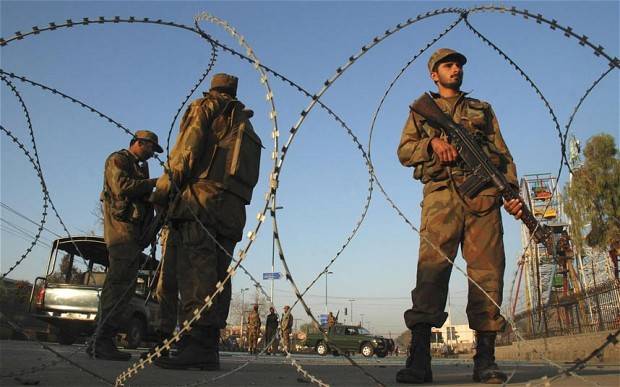The Rangers operation after the horrific attack on the members of the Shia Ismaili community in Safoora Goth is now the central focus of political analyses and the consensus is that the Rangers are falling short. The concern is that the gunmen were not deterred by the so-called Karachi operation launched in to rid the city of its law and order problem in September 2013. The fact is that justice in Karachi only seems to pursue criminals associated with political parties rather than going after those responsible for terrorist attacks (almost always militants linked with banned organisations). These militants are usually only dealt with in “encounters”, in procedures usually opaque and unclear. The point is, no body really knows who is doing what in Karachi, and the sheer cluelessness, inefficiency and lack of commitment in law enforcement will be the death of countless more. They can’t be pussyfooting around the problem anymore. Rangers and other law enforcement agencies should make their intentions about whether that they want to take action against the sectarian organizations and some problematic seminaries or not.
The Chief of Army Staff Gen Raheel Sharif has vowed to continue “across the board operations” at an increased tempo and hunt down terrorists. The army has also decided to implement effective policing and surveillance in Karachi, to prevent what the ISPR said were “sneaking terrorist attacks”. Karachi has been a security nightmare since the 1990s. We now talk about surveillance? For the people who have lost lives and have been living in Karachi, its just more talk, from quarters that are expected to act and execute. General Sharif knows what he has to do and how to execute things, and the nation is with him and the soldiers, but these mass killing keep happening again and again and again. Location is immaterial now; it could be any city, any bus, any school.
And what is the political leadership doing? Sindh has only been mired in terror and drought during the reigning of PPP’s Qaim Ali Shah. If bribery, corruption, and ideological myopia were not nurtured by the politicians, we might not have needed the Army to become policemen in Karachi. Not every problem has a military solution and rarely has the military been able to resolve internal conflicts. From one MQM don to another PPP don, the rot is spread wide and deep in Karachi, even before we start talking about various violent sectarian parties. This is not to say that the political parties have links with militant organisations, but to accuse them for making the space for crime and a blatant disregard for law and order to fester in the metropolis over the past thirty years.
Friday, April 19, 2024
Falling Short

Minister advocates for IT growth with public-private collaboration
9:57 PM | April 19, 2024
Formula 1 returns to China for Round 5
9:05 PM | April 19, 2024
Germany head coach Julian Nagelsmann extends contract till 2026 World Cup
9:00 PM | April 19, 2024
IMF urges Italy, France to spend less, Germany to loosen purse strings
8:57 PM | April 19, 2024
Empowering Women: The Vision of Maryam Nawaz Sharif
8:37 PM | April 19, 2024
A Tense Neighbourhood
April 19, 2024
Dubai Underwater
April 19, 2024
X Debate Continues
April 19, 2024
Hepatitis Challenge
April 18, 2024
IMF Predictions
April 18, 2024
Kite tragedy
April 19, 2024
Discipline dilemma
April 19, 2024
Urgent plea
April 19, 2024
Justice denied
April 18, 2024
AI dilemmas unveiled
April 18, 2024
ePaper - Nawaiwaqt
Advertisement
Nawaiwaqt Group | Copyright © 2024





